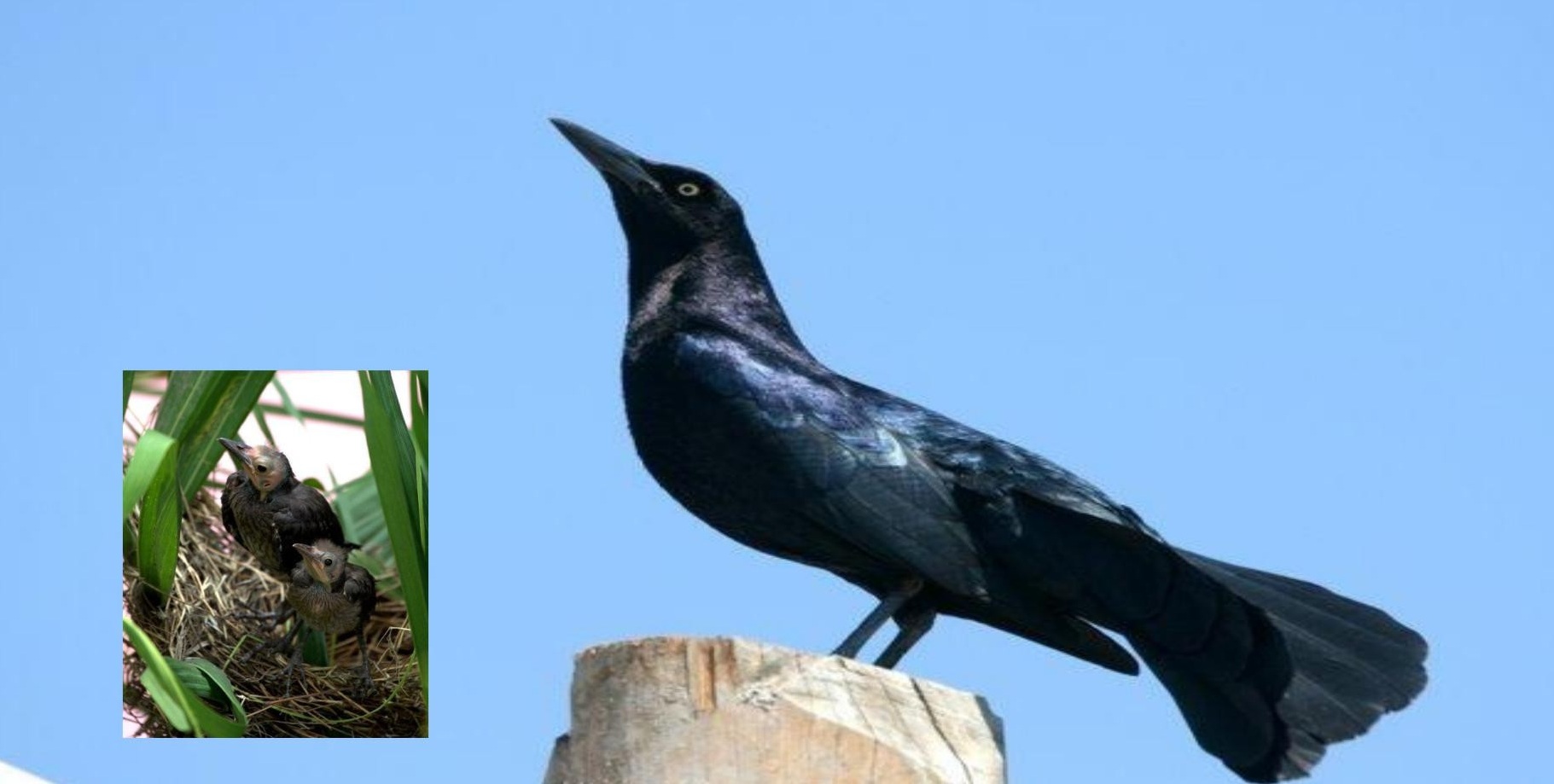By Howard Platt from the October 2010 Edition
GREAT-TAILED GRACKLE – (QUISCALUS MEXICANUS)

If you think the West Coast of Mexico is a good place to come for a party, you are joining the experts! Think evening, a busy warm day finally coming to a relaxing close. Except that the trees in the boulevard are suddenly populated by gregarious, noisy birds. It’s party time! The trees are full of activity and sound. The grackles have arrived.
These are Great-Tailed Grackles, a large black bird of the icterid family, also referred to simply as “blackbird”, and occasionally “crow” or “jackdaw”, though it is not a member of the Corvidae or crow family. It is often called “cuervo” in the areas of Mexico where there are no true crows.
These birds like open country with scattered trees and easily available water such as city parks and boulevards. Taking advantage of the effects of urbanization and irrigation, they have been moving northward from their home in Mexico into much of western United States and are now considered a pest because the damage they cause to some crops.
The males have yellow eyes, an iridescent black body with a purple sheen and a conspicuous tail; the females are smaller and more of a dull brown.
They eat almost anything – snails and invertebrates, tadpoles, lizards, insects, frogs, shrimp, small fish and birds, eggs and young of other birds, fruits, berries, seeds and grains.
Like all party animals they like displays. Two typical are the pointing and the spreading. In the pointing display the head is held up and the beak points skywards. It is intended to intimidate other males. Spreading is an attempt to attract female attention – low to the ground the tail is fanned, wings spread and the feathers fluffed up making the bird look much larger. Along with noises some describe as singing!
Their nests are often seen at the base of the fronds of the coconut or other palms. They are carefully woven from dried grasses into bowl shapes. Often the males do little more than offer protection by buzzing threatening intruders, while an extended family of females care for the young.
Grackles seem to love making noises. They have a wide range of loud calls and can even imitate the sound of the city such as car alarms. Party animals, yes, but polite too. Perhaps influenced by English speaking tourists you can hear them call, as they are ready to leave, “Check! check!”
Download the full edition or view it online




You must be logged in to post a comment.